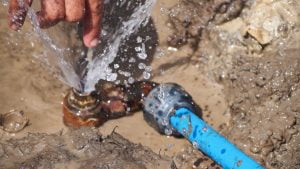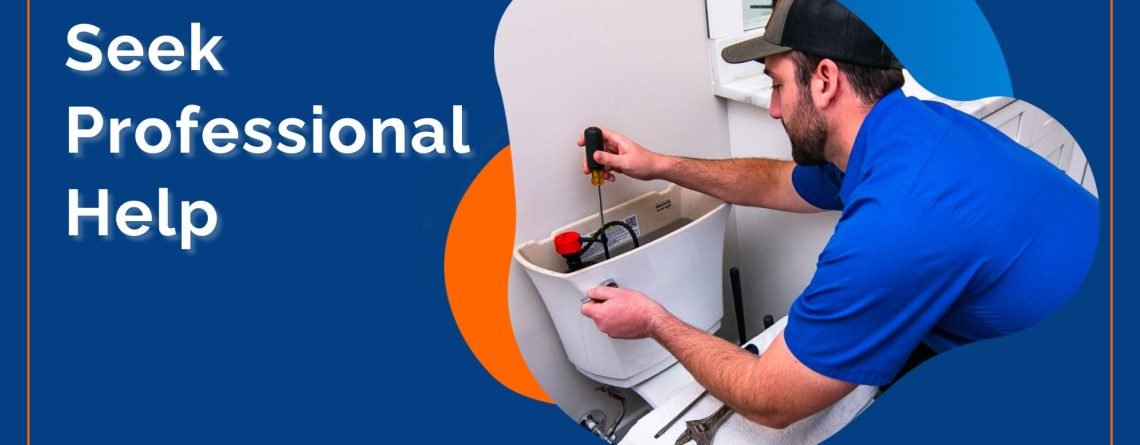What to Do During a Plumbing Emergency

What To Do During a Plumbing Emergency
What is a plumbing emergency? Do you know when to call for emergency plumbing service help versus when you should wait? A lot of homeowners don’t exactly know when to call because they don't understand the difference between emergency vs. non-emergency plumbing situation. so, here is a short list of what is plumbing emergency in which you should call a plumber immediately even after hours. A plumbing emergency or sudden need for a plumber situation are:
- Clogged Drains - Sewer Back-Up
- Pipe bursts in your wall
- Drain back-up flood
- Toilet leak
- Water Heater leak or fire
- Broken water-pipe
Is a Clogged Drain a Plumbing Emergency?
If you have a slow draining sink, tub, or drain it’s not exactly a plumbing emergency—this is more of a standard plumbing call. However, if you have a drain that’s completely clogged and unable to be used in your home then this is an emergency, and you should call a plumber immediately. If your main sewer line is clogged than often an area in your home will not drain or drain slowly, it could even your entire home. This is an emergency because such situation and activity can yield for a sewage back-up and spill in your home. Sewage and sewer water contamination is a hazard and should be taken seriously.
Is a Broken Water Pipe a Plumbing Emergency?

A broken water pipe is a plumbing emergency! If you notice that you have a soggy area in your yard or "spring like" water along the surface of your soil, you most likely have a broken pipe which is leaking water below the surface. Other signs water leak in the wall, under the slab (slab leak) or in your yard are decrease overall in your home’s water pressure and high water bills. Water leaks are usually in:
- Walls & Cabinets
- Slab & Under Floor
- Yard
Is a Water Heater Leak a Plumbing Emergency?
A leaking water heater is a plumbing emergency, and you should call an emergency plumber. When your water heater or the water lines (plumbing) above it are leaking they present a large danger. Water leak can cause an electrical shortage and even an electrical fire, more so, water is a conductive and can cause you to be electrocute in you come in contact with the surface or water. Another high risk you assume when you allow for your water heater to leak is flooding your home. A small leak can become a large leak when least expected causing pressured water to flood your home.
Is a No Water Pressure a Plumbing Emergency?
If you suddenly experienced a large drop in water pressure or even in extreme cases, no water at all (we're assuming you paid your water bill) you most likely have a broken main line. The main water line into your home is responsible for pressurizing and supplying water throughout the home. If this is your issue, don’t panic as it will only make it harder to address the issue fast enough to minimize the damage it can cause. If you keep your head and act quickly you can ensure that the damage is minimal, and your repair costs are minimized. Follow the steps below if you have any of the emergencies listed above.
How to Handle a Plumbing Emergency
Follow these easy steps to quickly control any plumbing emergency. Read on to learn how to minimize and reduce damage to your home during a plumbing emergency.
Step One: Turn Off the Water!
The main threat that a lot of plumbing emergencies pose is the ability to inflict a lot of water damage in a short period of time. So, the number one thing that you should do during a plumbing emergency is turn off the main water supply, the shut-off valve outside your home which is normally by the sidewalk under a cover labeled "Water". Do this as quickly as possible. If you already have an automatic water shutoff valve installed in your home, then this step is likely taken care of for you.
If you don’t, though, then we recommend knowing ahead of time where your water shutoff valve is and how to close it. You don’t want to run around looking for it in the moment, as it will only provide more time for the issue to cause more damage. Once the water is turned off, you at least won’t have to worry about any further harm being done by the problem.
Step Two: Clean Up the Surrounding Area
Depending on where the emergency plumbing issue is located, you should take the opportunity to clean it up as best you can after the water is turned off. Mop up any water that hasn’t already sunk into the floor and move any furniture or other items that might be damaged by water exposure. This will further mitigate how much water damage is done to the area and makes the issue itself easier to access once your plumber arrives. For a water cleanup service contact a company like servpro
Step Three: Call an Emergency Plumber!
Unfortunately, the vast majority of plumbing emergencies are not things that can be fixed without professional training and equipment. Once you’ve done all you can to prevent further damage from being done to your home, we recommend that you call a plumber as soon as possible to permanently resolve the issue for you. Make sure that you find one that actually offers emergency repair services, as it is by no means a universal service.
Hopefully, the tips outlined above will help you to keep cool and act to control the situation in the event of a plumbing emergency. If you have a plumbing emergency on your hands that you need dealt with as soon as possible, let us handle it for you. We’ll make sure that your home is as protected as possible. Choice Plumbing Orlando provides an emergency plumber in Orlando FL 24/7 - Same-Day

